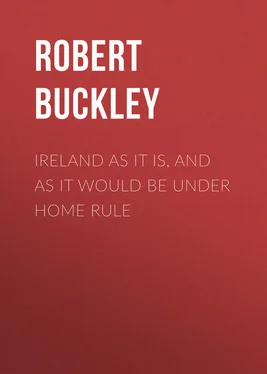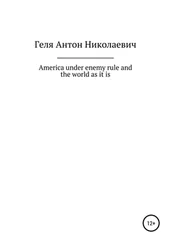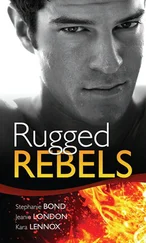Robert Buckley - Ireland as It Is, and as It Would Be Under Home Rule
Здесь есть возможность читать онлайн «Robert Buckley - Ireland as It Is, and as It Would Be Under Home Rule» — ознакомительный отрывок электронной книги совершенно бесплатно, а после прочтения отрывка купить полную версию. В некоторых случаях можно слушать аудио, скачать через торрент в формате fb2 и присутствует краткое содержание. ISBN: , Жанр: foreign_antique, foreign_prose, на английском языке. Описание произведения, (предисловие) а так же отзывы посетителей доступны на портале библиотеки ЛибКат.
- Название:Ireland as It Is, and as It Would Be Under Home Rule
- Автор:
- Жанр:
- Год:неизвестен
- ISBN:http://www.gutenberg.org/ebooks/29710
- Рейтинг книги:5 / 5. Голосов: 1
-
Избранное:Добавить в избранное
- Отзывы:
-
Ваша оценка:
- 100
- 1
- 2
- 3
- 4
- 5
Ireland as It Is, and as It Would Be Under Home Rule: краткое содержание, описание и аннотация
Предлагаем к чтению аннотацию, описание, краткое содержание или предисловие (зависит от того, что написал сам автор книги «Ireland as It Is, and as It Would Be Under Home Rule»). Если вы не нашли необходимую информацию о книге — напишите в комментариях, мы постараемся отыскать её.
Ireland as It Is, and as It Would Be Under Home Rule — читать онлайн ознакомительный отрывок
Ниже представлен текст книги, разбитый по страницам. Система сохранения места последней прочитанной страницы, позволяет с удобством читать онлайн бесплатно книгу «Ireland as It Is, and as It Would Be Under Home Rule», без необходимости каждый раз заново искать на чём Вы остановились. Поставьте закладку, и сможете в любой момент перейти на страницу, на которой закончили чтение.
Интервал:
Закладка:
A Mr. Ponsonby wanted his rents, or part of them. His tenants had lived rent-free for so long – some of them were seven years behind – that they naturally resented the proposed innovation. Mr. Smith-Barry and others came to Mr. Ponsonby's assistance, and, endeavouring to settle the thing by arbitration, proposed that the landlord should knock off £22,000 of arrears, should make reductions of 24 to 34 per cent. in the rents, and make the tenants absolute owners in 49 years. This was not good enough. Judge Gibson thought it "extravagantly generous," but the Tipperary folks resented Mr. Smith-Barry's connection with such a disgracefully tyrannical piece of business, and, at the instance of William O'Brien, determined to make him rue the day he imagined it. They sent a deputation to remonstrate, and Mr. Smith-Barry, while adhering to his opinion as to the liberality of the proposition, explained that he was only one of many, and that whatever he said or did would not change the course of events. The Tipperary folks required him to repudiate the arrangement, to turn his back on his friend and himself, and – here is the cream of the whole thing, this is deliciously Irish – they soberly, seriously, and officially proposed to Mr. Smith-Barry that in addition to the 15 per cent. abatement they had just received on their rent he should make a further remittance of 10 per cent. to enable them to assist the Ponsonby tenants in carrying on the war against their landlord, on whose side Mr. Smith-Barry was fighting. They said in effect, "You have given us 3s. in the pound, to which we had no claim; now we want 2s. more, to enable us to smash the landlord combination, of which you are the leader." This occurred in the proceedings of a business deputation, and not in a comic opera.
Mr. Smith-Barry failed to see the sweet reasonableness of this delightful proposition, and then the fun began.
O'Brien to the rescue, whirroo!
He rushed from Dublin, and told the Tipperary men to pay Smith-Barry no rent. If they paid a penny they were traitors, slaves, murderers, felons, brigands, and bosthoons. If they refused to pay they were patriots, heroes, angels, cherubim and seraphim, the whole country would worship them, they would powerfully assist the Ponsonby folks in the next county, they would be saviours of Ireland.
And besides all this they would keep the money in their pockets. But this was a mere detail.
The people took O'Brien's advice, withholding Mr. Smith-Barry's rent, keeping in their purses what was due to him, in order that somebody's tenants in the next county might get better terms. Still Mr. Smith-Barry held out, and the Land League determined to make of him a terrible example. He owned most of the town. Happy thought! let the shopkeepers leave his hated tenements. Let their habitations be desolate and no man to dwell in their tents. The Land League can build another Tipperary over the way, the tenants can hop across, and Mr. Smith-Barry will be left in the lurch! The end, it was thought, would justify the means, and some sacrifice was expected. Things would not work smoothly at first. The homes of their fathers were void; new dunghills, comparatively flavourless, had to be made, the old accretions, endeared by ancestral associations, had to be abandoned, and the old effluvium weakened by distance was all that was left to them. The new town was off the main line of trade and traffic, but it was thought that these, with the old Tipperary odour, would come in time. Streets and marts were built by the Land League at a cost of £20,000 or more. The people moved away, but they soon moved back again. The shopkeepers could do no business, so with bated breath and whispering humbleness they returned to Mr. Smith-Barry. The mart was declared illegal, and the old one was re-opened. But while the agitation continued, the town was possessed by devils. Terrorism and outrage abounded on every side. The local papers published the names of men who dared to avow esteem for Mr. Smith-Barry, or who were supposed to favour his cause. The Tipperary boys threw bombshells into their houses, pigeon-holed their windows with stones, threw blasts of gun-powder with burning fuses into their homes. They were pitilessly boycotted, and a regular system of spies watched their goings out and their comings in. If they were shopkeepers everything was done to injure them, and people who patronised them were not only placed on the Black List but were assaulted on leaving the shops, and their purchases taken by violence and destroyed. Broken windows and threats of instant death were so common as to be unworthy of mention, and the hundred extra armed policemen who were marched into the town were utterly powerless against the prevailing rowdyism of the Nationalist party. Honest men were coerced into acting as though dishonest, and one unfortunate man, who had in a moment of weakness paid half-a-year's rent, pitifully besought Mr. Smith-Barry's agent to sue him along with the rest, and declared he would rather pay it over again than have it known that the money had been paid. "Ye can pay a year's gale for six months, but ye can't rise again from the dead," said this pious victim to circumstances.
At last the leaders were prosecuted, but before this the Boys had great divarshun. These good Gladstonians, these ardent Home Rulers, these patriotic purists, these famous members of the sans-shirt Separatist section, set no limits to their sacrifices in the Good Cause, stuck at nothing that would exemplify their determination to bring about the Union of Hearts, were resolved to take their light from under a bushel and set it in a candlestick. They wrecked many houses and sorely beat the inmates. They burnt barns, and stacks, and homesteads, and in one case a poor man's donkey-cart with its load of oats. They exploded in people's homes metal boxes, leaden pipes, and glass bottles containing gun-powder, in such numbers as to be beyond reckoning. They burnt the doors and window sashes of the empty houses, knocked people down at dark corners with heavy bludgeons, and fired shots into windows by way of adding zest to the family hearth. Poor John Quinlan escaped five shots, all fired into his house. Mr. Bell, of Pegsboro, beat this record with six. He was believed to sympathise with Mr. Smith-Barry! Men with white masks pervaded the vicinity from the gentle gloaming till the witching morn, and woe to the weak among their opponents, or even among the neutrals, whom they might meet on their march!
The tenants were great losers. A commercial man from Dublin assured me that the agitation cost him £2,000 in bad debts. The people were inconvenienced, unsettled, permanently demoralised, their peaceful relations rudely interrupted, themselves and their commercial connections more or less discredited and injured, and the whole prosperous community impoverished, by the machinations of O'Brien and Bishop Croke of Thurles, a few miles away. The inferior clergy were of course in their element. Father Humphreys and others were notorious for the violence of their language. Gladstonians who think Home Rule heralds the millennium, and who babble of brotherly love, should note the neat speech of good Father Haynes, who said, "We would, if we could, pelt them not only with dynamite, but with the lightnings of heaven and the fires of hell, till every British bulldog, whelp, and cur would be pulverised and made top-dressing for the soil." This is the feeling of the priests, and the people are under the priestly thumb. That this is so is proved by recent events in Dublin. None but the Parnellites could make head against the Catholic Party. In the recent conflict the Parnellites were squelched. Tim Healy kicked and bit, but Bishop Walsh got him on the ropes, and Tim "went down to avoid punishment." The priest holds Tim in the hollow of his hand. Tim and his tribe must be docile, must answer to the whistle, must keep to heel, or they will feel the lash. Should they rebel, their constituencies, acting on priestly orders, will cast them out as unclean, and their occupation, the means by which they live, will be gone. Tim and his congeries hate the clerics, but they fear the flagellum. They loathe their chains, but they must grin and bear them. They have no choice between that and political extinction.
Читать дальшеИнтервал:
Закладка:
Похожие книги на «Ireland as It Is, and as It Would Be Under Home Rule»
Представляем Вашему вниманию похожие книги на «Ireland as It Is, and as It Would Be Under Home Rule» списком для выбора. Мы отобрали схожую по названию и смыслу литературу в надежде предоставить читателям больше вариантов отыскать новые, интересные, ещё непрочитанные произведения.
Обсуждение, отзывы о книге «Ireland as It Is, and as It Would Be Under Home Rule» и просто собственные мнения читателей. Оставьте ваши комментарии, напишите, что Вы думаете о произведении, его смысле или главных героях. Укажите что конкретно понравилось, а что нет, и почему Вы так считаете.












